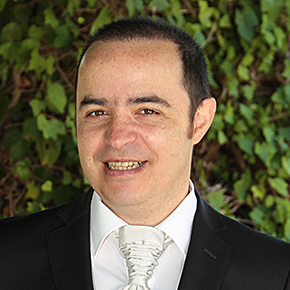Learning From Teammates and By Applying Knowledge
Interview with IdeaConnection problem solver Ricardo Mateus By Paul Arnold
Ricardo Mateus is an analytics consultant and researcher who specializes in decision theory, data science and operations research among other fields. To date he has taken part in four IdeaConnection R&D problem-solving challenges.In this interview, Ricardo talks about what he gets out of participating in the team-based challenges and his experience of working on the recent linear programming challenge for which his team was successful.
 The linear programming challenge was to solve a genetic problem in which the seeker wanted to know which combination of genes contributes to the phenotype of a certain species. A phenotype is any observable trait of an organism such as its height, its color, and so on. Nowadays it is possible to identify the genes that comprise the genotype of species. But the relationship between genes and their phenotype effect is seldom one-to-one. On the contrary, most of the effects are derived from combinations of multiple genes interacting together, a phenomenon known as epistasis.
The linear programming challenge was to solve a genetic problem in which the seeker wanted to know which combination of genes contributes to the phenotype of a certain species. A phenotype is any observable trait of an organism such as its height, its color, and so on. Nowadays it is possible to identify the genes that comprise the genotype of species. But the relationship between genes and their phenotype effect is seldom one-to-one. On the contrary, most of the effects are derived from combinations of multiple genes interacting together, a phenomenon known as epistasis.We modeled a mixed integer linear optimization problem to fit real data about the genes and their phenotype values to identify which gene combinations were responsible for the observable effect. This would help the seeker to predict phenotype effects or target relevant interventions (e.g. plant breeding programs, disease diagnoses and treatments) at an individualized level.
How accurate was the model?
It was pretty accurate. Our results showed that phenotype traits could be predicted efficiently (within a few minutes) and accurately (precisions above 99%) even for complex genotypes involving combinations among one hundred genes.
It was obviously successful because the seeker gave you the award.
The seeker liked it. We also suggested further improvements. The methods can be used to predict crop yields and complex diseases as well as any other type of problem involving genes. The seeker also asked us to present the results in a scientific article using the format of PNAS (Proceedings of the National Academy of Sciences).
Why do you take part in challenges?
The principal reason is for the challenge itself. If it is something that is in my scientific scope I do it. If I feel comfortable with the problem I do it. And it’s an opportunity to apply what I already know and to further research some topics. Those are the most important reasons.
Of course, I also like doing them because they have a financial award. Also important for me is getting to know different scientific backgrounds and cultures.
One other thing I like about the challenges is that even though there is a deadline we have a flexible work schedule. We don’t have to do it like a regular job. We can think about the problem during traffic jams, at the beach, when trying to sleep, you know wherever you like to wonder about things. Sometimes it’s in these sorts of places that you get the most insightful ideas, at least in my case.
What do you enjoy about the experience of working on IdeaConnection challenge teams?
It is an opportunity to experience other cultures and ways of thinking. We all have our distinct scientific backgrounds and it’s great to have the opportunity to discuss our ideas with like-minded people. For instance, in the Markush challenge, I was more focused on problem structuring, another colleague was an expert in chemical drug patents and others were more focused on using data science methods.
A fundamental part of any team is the facilitator. They are responsible for half of the team’s success by keeping the pace and rhythm and solving any relationship problems if they come up. The other half is due to the team’s technical background and having the time and the will to do the job.
Finally, are you learning as well as imparting your knowledge when participating in challenges?
I learn new concepts from other scientific disciplines, but I learn the most from the specific application area of the challenge. For instance, I knew almost nothing about genes and how they relate to phenotypes besides general knowledge. But with this latest challenge, I had the opportunity to delve into how genes relate and generate phenotypic traits and so on.
It was the same with my previous challenge which was about chemical processes. It was good to review and know better how new chemical compounds are represented and how they are patented using so-called Markush structures. It’s from applying knowledge that I learn the most but I also learn from my colleagues on the teams.
